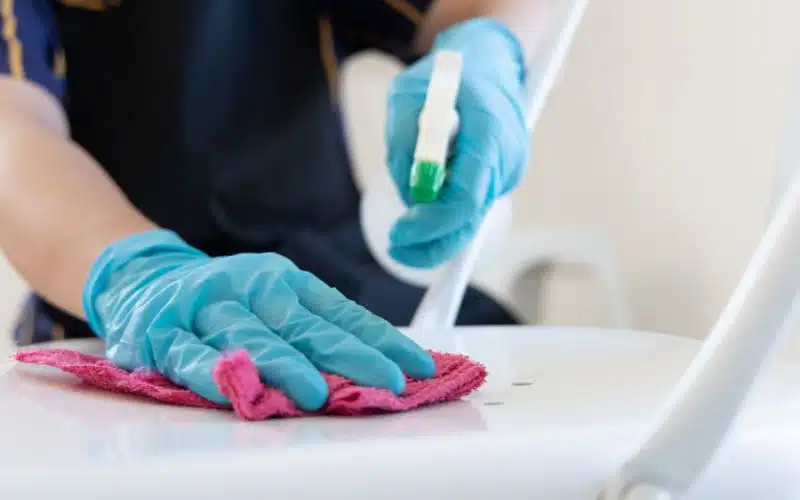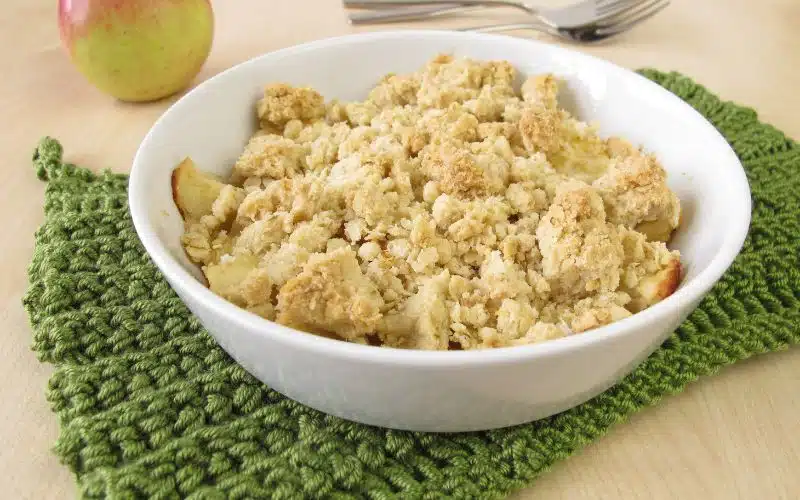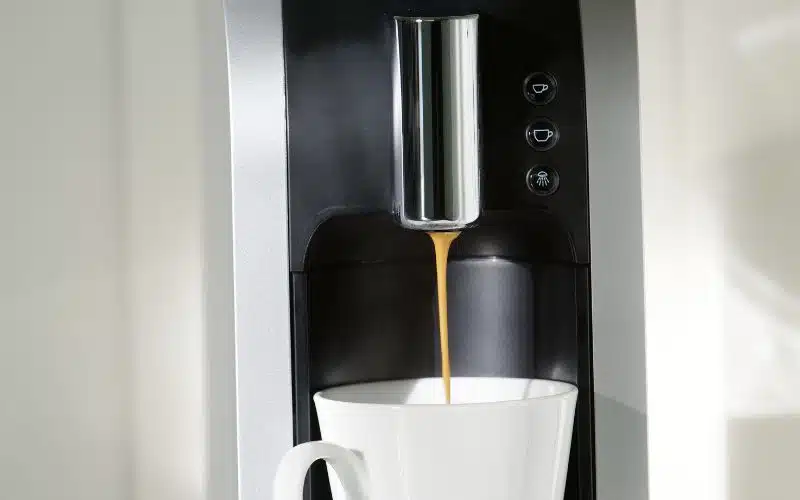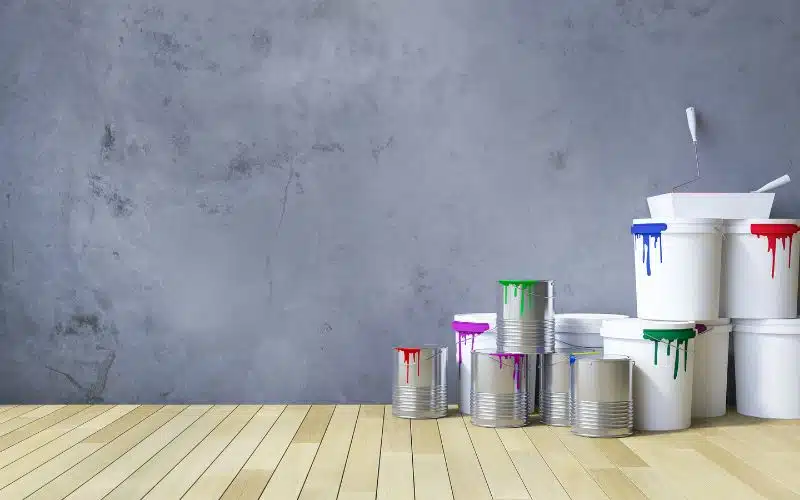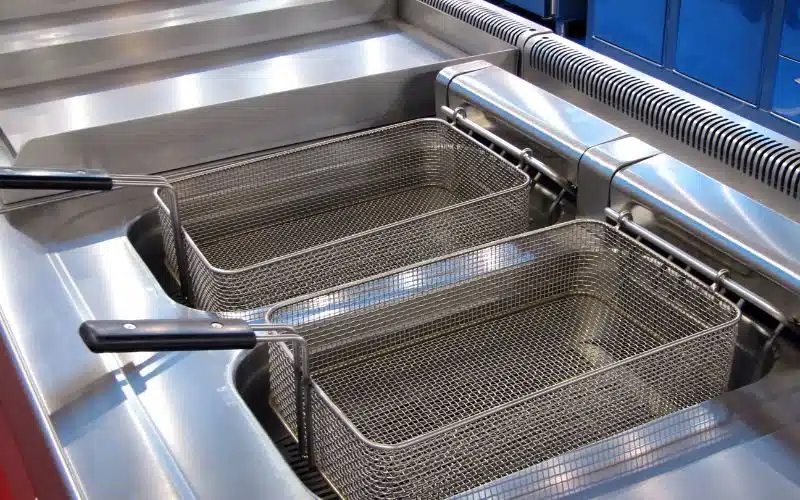Mold is sneaky and can pop up anywhere, especially in damp places like your kitchen or bathroom.
But here’s a fun fact: dish soap, the superhero in your kitchen, might just be the key to defeating mold.
It’s easy to use, safe, and you probably already have it! In this article, we’ll dive into how this common household item can become your secret weapon against pesky mold.
Get ready to learn some neat tricks that will leave your home mold-free and sparkling clean!
Dish Soap & Vinegar: Your Mold-Fighting Duo
- Effectiveness: Dish soap, especially when mixed with vinegar, can effectively disrupt and remove mold, without creating toxic fumes.
- How to Use: Mix Dawn soap and vinegar (no precise measurements required) and apply to the moldy area. Let it sit, then scrub lightly.
- Surface Suitability: Works well on both porous and non-porous surfaces, with vinegar killing about 82% of mold species.
- Safe & Easy: This method is safe, uses common household items, and does not require special skills.
- Remember: For severe mold issues, professional solutions might be necessary. Regular cleaning and maintaining a dry environment are key to preventing mold growth.
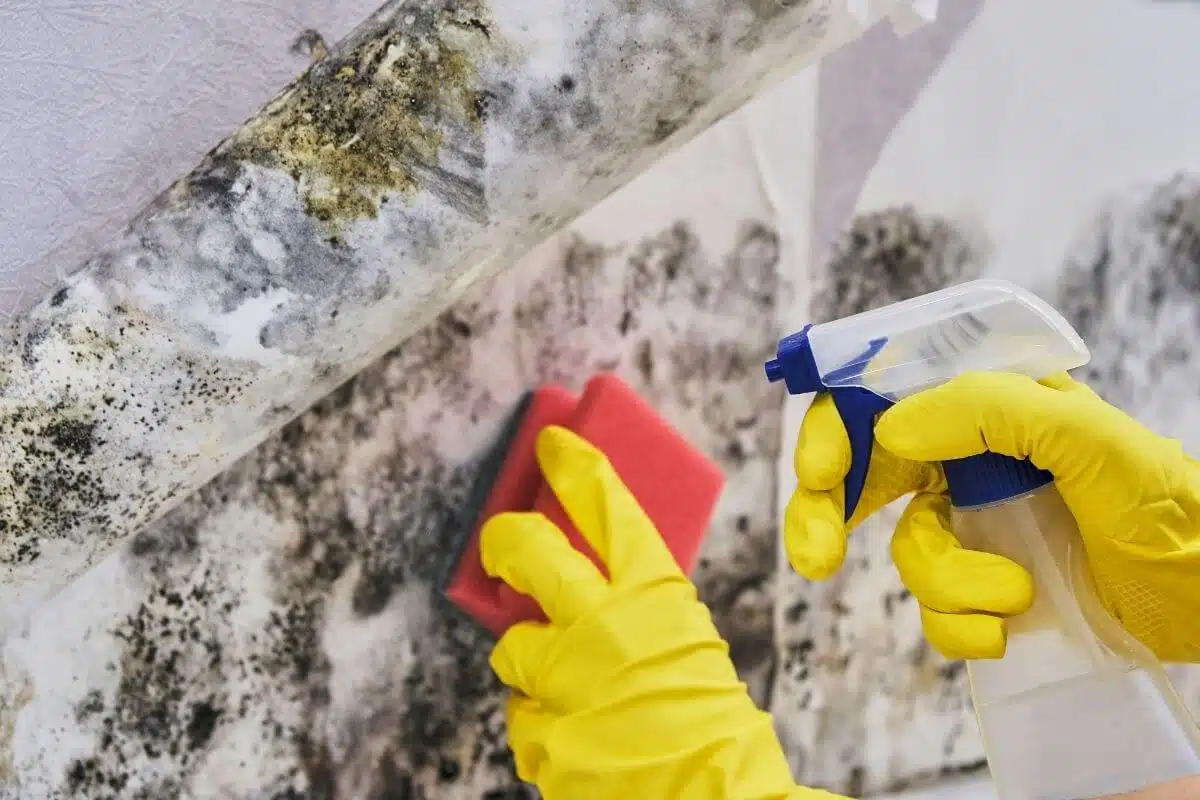
Does Dawn and Vinegar Kill Mold?
When you’re facing mold at home, you have a couple of choices. Vinegar stands out for its ability to combat mold, thanks to its quality of being an antifungal and antibacterial agent.
You might find Vinegar kill mold very helpful. It kills about 82% of mold species.
Here’s how you can put vinegar to work:
- Put water and 5% white vinegar into a spray bottle.
- Shake it well.
- Spray onto the moldy surface.
Give vinegar about an hour to work into the mold. Then, scrub it away. Keep in mind, that the bigger the mold area, the more vinegar you’ll need.
And what about Dawn soap? Turns out, it’s also a fighter against mold, especially when mixed with vinegar. This mixture doesn’t create toxic fumes and is safe to use.
Dawn disrupts mold colonies, hindering their growth. For a thorough clean, mixing vinegar with Dawn soap gets the job done.
Why Choose Vinegar?
- Antifungal: It’s tough on fungus.
- Antibacterial: It knocks out bacteria.
How to Use Dawn and Vinegar Together?
- Mix:
- Dawn soap
- Vinegar
(No exact measures needed, just a good squirt of each)
- Apply the mixture to the moldy area.
- Wait a bit then scrub lightly.
Remember to consider the surface and mold type. Some molds are harder to kill than others, and some surfaces respond better to treatment.
Do Soap And Water Remove Mold?
Using soap and warm water, you can clean visible mold off many surfaces. It’s easy and affordable. You don’t need special skills to use this method.
Cleaning with Soap and Water:
- Porous Surfaces: On surfaces like wood and ceiling tiles, soap and water can remove mold stains. But these surfaces may hold onto mold spores. It’s harder to get mold out of porous materials.
- Non-Porous Surfaces: On the glass, shower tiles, and kitchen sinks, soap and water can clean mold well. These surfaces don’t let mold penetrate, making cleaning more effective.
Steps to Clean Mold:
- Mix Solution: Combine dish soap with Borax in warm water.
- Apply: Gently apply the mixture where the mold is visible.
- Scrub: With a bristle brush or scrubber, rub the moldy areas.
- Rinse and Repeat: After scrubbing, rinse with water and scrub twice more.
Dish soap contains surfactants. These are like a team that lifts dirt and weakens mold’s grip on surfaces.
Some cleaning products include bleach. Bleach in dish soap helps kill mold and other germs. Keep in mind that harsh chemicals can be dangerous if not used correctly.
Maintaining a Mold-Free Environment:
- Use hot water: It helps remove and kill mold.
- Clean Regularly: Wash dishes and hard surfaces often.
- Sponge Sanitation: Change your cleaning sponge every week.
Triclosan is found in many dish soaps. It’s an agent that stops mold and bacteria from growing. Think of it as a guardian against germs.
Yet, soap and water might not kill all mold spores. They can clean and reduce mold’s presence on hard and non-porous surfaces.
Remember, cleaning with soap and water is a good starting point. If you’re dealing with a severe mold issue, consider professional cleaning solutions.
What Kills Mold Permanently?
Mold thrives where moisture lingers. Keep your home dry and clean to stop mold in its tracks.
Remember, mold can grow back if conditions are right. So, prevention is key. Let’s explore how you can beat mold permanently.
Control Humidity and Moisture
- Maintain humidity below 60%.
- Fix leaks and broken pipes promptly.
- Use dehumidifiers and fans to keep the air dry.
Regular Cleaning
- Wipe wet surfaces immediately.
- After showering, dry the tub with a squeegee.
- Clean dishes and water appliances before storing.
Enhance Ventilation
- Don’t place furniture against walls.
- Open doors and windows for at least 30 minutes daily.
- Install fans in your bathroom and kitchen.
Mold Repellent Solutions
- Spray vinegar, bleach, or hydrogen peroxide to prevent mold growth.
- Never mix these solutions to avoid dangerous reactions.
Protective Measures While Cleaning
- Wear gloves, goggles, and an N-95 respirator.
- Use protective gloves when handling mold-infested materials.
Tools for Removal
- Use a vacuum with a HEPA filter to clean up mold.
- Scrub surfaces with a borax solution for a non-toxic alternative to bleach.
Addressing the Roots
- Borax can kill mold down to the roots.
- Alcohol solutions can also help in removing mold effectively.
Preventions After Removal
- Keep your house warm with heaters set to at least 15° Celsius.
- Paint your house with anti-mold paints for a long-term solution.
Remember that killing existing mold and taking steps to keep it from coming back are both crucial. Stay vigilant and make your home a place where mold can’t thrive.
